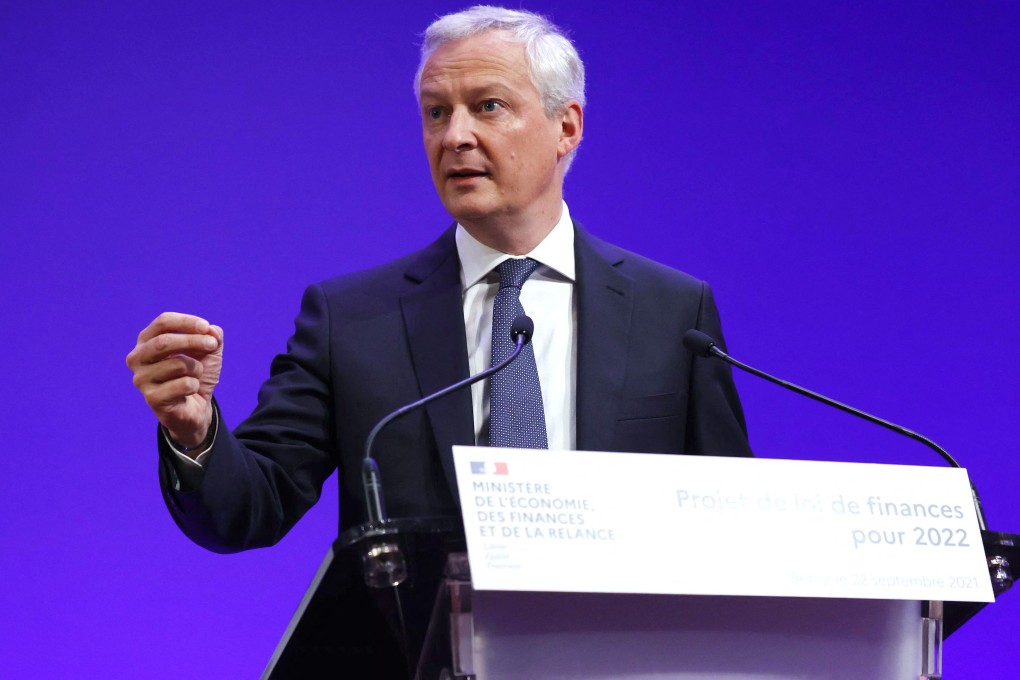Advertisement
Global tax rules ‘within reach’ but ‘it’s now or never’ ahead of key OECD meeting, French finance minister says
- Members of the Organisation for Economic Co-operation and Development (OECD) will meet on Friday to discuss new global rules to share tax revenues
- The talks aim to close differences ahead of a meeting of Group of 20 finance ministers next week and heads of state in Rome at the end of October
Reading Time:3 minutes
Why you can trust SCMP

Countries must resolve disagreements in the coming days over details of new global rules to share tax revenues from the world’s biggest companies and set a minimum rate, or the talks could founder, French finance minister Bruno Le Maire said.
Raising the alarm at the prospect that years of negotiations could miss a vital window of opportunity at a meeting on Friday of the 140 countries involved, the minister outlined his hopes for a compromise in a briefing with reporters on Tuesday.
“A definitive agreement on tax in the 21st century is within reach and it is now or never,” Le Maire said.
Advertisement
“Either we get an agreement in the coming days or it will be very difficult to recreate a political dynamic for a deal with all the technical parameters.”
Advertisement
More than 130 countries in the Organisation for Economic Co-operation and Development (OECD)-led discussions approved a preliminary agreement in July, but others refused to sign as the plans left gaps on key parameters that will determine how much governments and multinationals win or lose.
Advertisement
Select Voice
Choose your listening speed
Get through articles 2x faster
1.25x
250 WPM
Slow
Average
Fast
1.25x